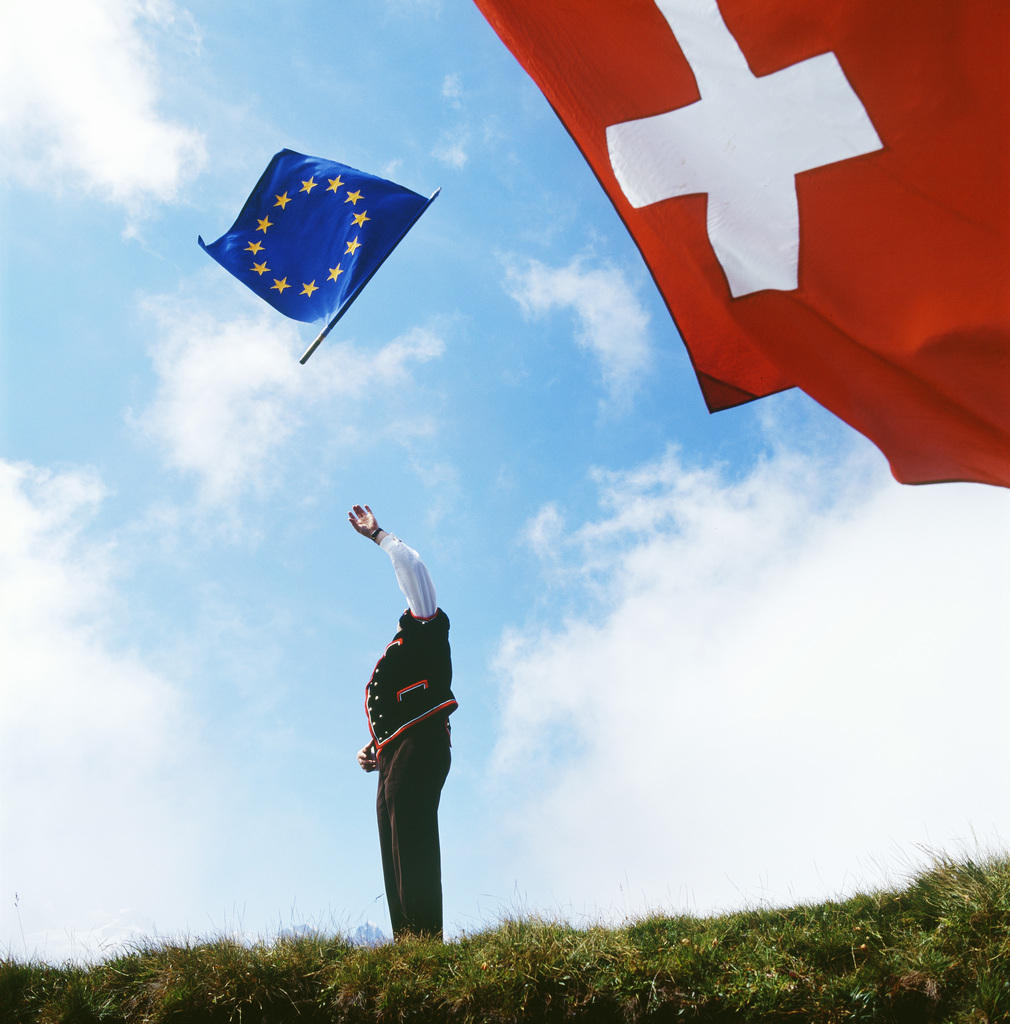
EU turns off funding tap for Swiss NGOs

Ten Swiss non-governmental organisations are set to lose key European Union funding for humanitarian operations, Swiss public radio, SRF, reported on Monday.
Just before Christmas, the European Commission sent letters to ten Swiss NGOs regarding the status of Framework Partnership Agreements (FPAs) concluded with Brussels for the funding of humanitarian operations. It has decided that Swiss organisations such as Médecins Sans Frontières Switzerland, Caritas and World Vision will no longer receive funding from Brussels worth over €50 million (CHF57 million) in the past, SRF has learned.
In the letterExternal link, the European Commission explained that in the preparation for a new FPA it had carried out an in-depth legal review of existing cooperation arrangements. The previous FPA had been drawn up based on the Council of Europe’s Convention 124, which recognised the “legal personality of international NGOs”. However, the commission said the EU had not ratified this convention, which doesn’t include rules regarding the eligibility of NGOs for EU funding.
Brussels therefore regrets that “it will no longer be possible for organisations based in states outside the Union to be considered eligible” and thus it will “no longer be possible to award an FPA to such organisations”. Although they will not be able to receive funds under the FPA, Swiss NGOs can continue to operate as implementing partners. Brussels added that ongoing humanitarian actions funded by the EU “remain unaffected”. The change reported by SRF has been in force since January 1, 2019.
‘Small shock’
“It was a small shock,” said Solidar Switzerland director Felix Gnehm. “It wasn’t totally unexpected, as we knew that the EU was examining future cooperation with Swiss organisations within the context of Brexit… but we didn’t expect it so quickly.”
Until recently, each Swiss NGO has had to secure individual accreditation with Brussels and prove that they meet certain conditions to be able to apply for tens of millions of euros of EU funding.
Gnehm believes Brexit – Britain is set to leave the EU on March 29 – has had an influence on decisions in Brussels, but the European Commission rejected this argument when probed by SRF, underlining the legal aspects.
According to the Swiss broadcaster, there has been a dispute on this issue within EU administration. It claims the directorate-general responsible for humanitarian aid did not want to end cooperation, but the legal service, linked to Commission President Jean-Claude Juncker, has pushed for a tough stance.
Complicated relations
The European Commission’s Civil Protection and Humanitarian Aid Operations (ECHO)External link works with over 200 partners organisations to provide humanitarian assistance throughout the world. Humanitarian partners include NGOs, international organisations, United Nations agencies and specialised agencies of EU member states.
Ties between the EU and Switzerland, which is not a member of the 28-nation bloc, have been complicated by recent efforts to conclude a deal on their long-term relationship. Both sides have been struggling for five years to finalise an institutional framework agreement aimed at cementing future ties. Current relations are covered by around 120 separate accords that have been negotiated since 1992.
Swiss appetite to finalise the agreement has been mixed, however, with politicians from both right and left recently calling for a renegotiation of the latest terms. A public consultation process involving those concerned is currently being prepared. The EU, on the other hand, is pushing for a prompt outcome.

More
Swiss government wants public consultation on EU framework deal

In compliance with the JTI standards
More: SWI swissinfo.ch certified by the Journalism Trust Initiative


























You can find an overview of ongoing debates with our journalists here . Please join us!
If you want to start a conversation about a topic raised in this article or want to report factual errors, email us at english@swissinfo.ch.